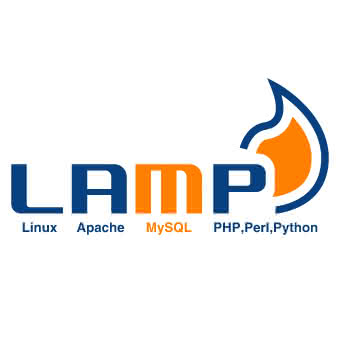Install LAMP stack or custom environment?
This will be the first article in a series of tutorials that will aim to
install and configure a web server
. One of the first choices we must make before installing the software of our web server, is whether we are going to
perform a LAMP stack installation or if we are going to resort to a custom installation
.

Before moving forward I think it is inevitable to clarify the
meaning of LAMP
for those who are somewhat lost.
LAMP refers to an environment with Linux, Apache, MySQL and PHP software
(sometimes other scripting languages "‹"‹such as Perl or Python are also included)
.
Install LAMP stack or custom environment?
The first decision we must make is whether we are going to create a stack or custom installation. As many of you will be wondering what differences there is between a stack and a custom installation, we will point out the differences with their advantages and disadvantages:
-
Stack installation
: consists of
installing the existing software packages in the official
Ubuntu
repositories
. With this option we have guaranteed long-term updates and the security that the packages will be thoroughly tested before they are available to the public. In principle, the only drawback is that these packages follow the Ubuntu update policies and carry a slower update rate, that is, we will not have the latest versions of the software until some time has passed.
-
Custom installation
: it consists of
resorting to an unofficial repository to install the software
. This option has the disadvantage that these repositories usually pass fewer tests before they are available to the public. As a direct consequence of the above, the update rate will be faster, so in these repositories we have the most recent versions of the software available. A disadvantage is that these repositories are maintained by very small groups of people, which does not give us long-term maintenance guarantees.
Within custom installations, perhaps you should include the option of compiling the software source code ourselves, but in my opinion this is a slow and more complex process that will end up complicating long-term maintenance tasks, so I always recommend to resort to repositories.
It is true that compiling from the source code allows us greater customization and flexibility, but there are few cases in which we will need to resort to this option.
As the objective of this article is to reflect on which option is best for our server, I will say that we will choose a combination of both options, that is, for some software packages we will use the official Ubuntu repositories and for others we will use the custom repositories.
As an example, when installing
MariaDB
we will use the official repositories of MariaDB, since we can find repositories for Ubuntu. This does not happen with Apache, since there are no official Apache repositories for Ubuntu, so you have to use an unofficial repository or a stack installation.
So far for the moment, in the next tutorial we will learn to
install and configure Apache
.